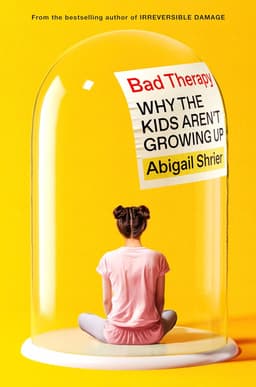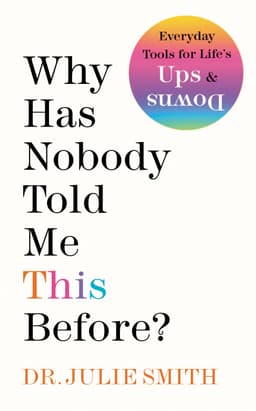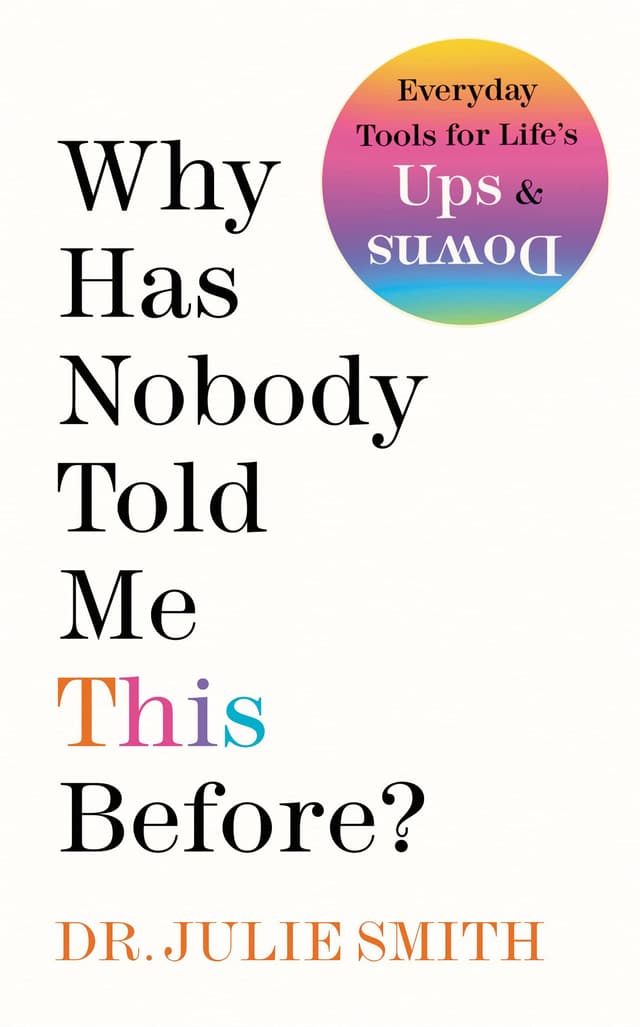
Bad Therapy Book Summary
Why the Kids Aren't Growing Up
Book by Abigail Shrier
Want to read the full summary?Click here to read for free!
Summary
In "Bad Therapy," journalist Abigail Shrier argues that today's pervasive "therapeutic" culture and overzealous mental health interventions are harming young people by promoting learned helplessness, pathologizing normal emotions, and inhibiting the development of resilience.
Sign in to rate
Average Rating: 1
These are the best quotes from Bad Therapy by Abigail Shrier. If you want to read a full summary of this book for free, click here.
Good Therapy Doesn't Create Disorder Where None Exists
"Ortiz absolutely believes in the ameliorative power of specific kinds of therapies, especially cognitive-behavioral and dialectical behavior therapies (known as CBT and DBT) for remediating specific ailments like tic disorders, affective disorders, and obsessive-compulsive disorder... But he has enough respect for the power of therapy to reject the idea that everyone should be in therapy, a notion Ortiz likens to a surgeon who ventures: Well, he looks healthy, but let's open him up and see what we find."
Section: 1, Chapter: 3
Empathy Makes Us Tribal, Not Impartial
"Empathy is a spotlight focusing on certain people in the here and now. This makes us care more about them, but it leaves us insensitive to the long-term consequences of our acts and blind as well to the suffering of those we do not or cannot empathize with. Empathy is biased, pushing us in the direction of parochialism and racism."
"You cannot empathize with more than one or two people at a time. Try it." - Paul Bloom, The Case Against Empathy
Section: 3, Chapter: 8
Credentialed Experts Lack Skin In The Game
"Today, the story would likely proceed differently. The mother would panic and invite the art teacher to tell her more. The rest of the snowball's descent is predictable. At the parents' invitation, a now-familiar phalanx of professionals would blunder in, lodging themselves between parent and child: therapists, teachers, educational and parenting experts, psychiatrists, and even activists - anyone with an opinion about a child they may have just met and for whom they have neither love nor responsibility. None of whom bears the slightest consequence of their bad advice."
Section: 3, Chapter: 11
Parents Need to Stop Running Interference
"You obviously don't need to hurt your kid's feelings in order to strengthen her. You just need to stop running interference. Stop micromanaging her relationships in the hopes that no one and nothing in the vicinity will ever make her feel the slightest bit bad. The project is doomed to backfiring. Pathogens always worm their way in, even to the most sterilized environments. Better to develop an immune system."
Section: 3, Chapter: 12
Related Content


Why Has Nobody Told Me This Before Book Summary
Julie Smith
In "Why Has Nobody Told Me This Before?", Dr. Julie Smith shares practical insights and tools from therapy to help you navigate life's challenges, build resilience, and create a meaningful life aligned with your values.
In "Why Has Nobody Told Me This Before?", Dr. Julie Smith shares practical insights and tools from therapy to help you navigate life's challenges, build resilience, and create a meaningful life aligned with your values.
Psychology
Therapy
Self-Help
Personal Development

